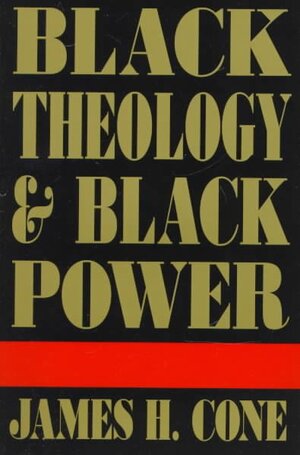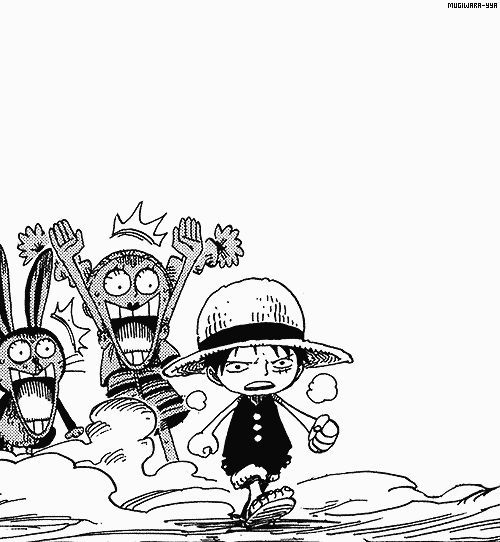'He killed them to save them' says mass-murderer sympathizer
:what-the-hell:
This myth is so pervasive and everpresent when you look into the atomic bombings. In high school when I was writing papers about it condemning the US for the mass murder of civilians, it was in part to be contrarian because most sources besides one website "The United States is the Largest Terrorist Organization on Earth" all were saying that a ground invasion would have met with the most bitter resistance from every man, woman, and child in Japan. In reality if you listen to any first hand accounts from the Japanese working class at the time, they were all sick and tired of the war and just wanted it over. If you look at what the Japanese government was doing at the time as well, you'll find that they were also desperately looking for a way out.
It's a cul-de-sac for looking at history. "We had to kill them because otherwise they would've killed more of their own killing ours," or "Communism works well on paper but fails when accounting for human nature." A myth created to stop people that might actually feel as though something might be wrong with the official narrative that gets repeated so often that it becomes nauseating to anyone that has since escaped the cul-de-sac but to the people within see it as this uncommon knowledge and hard to handle truth that they need to tell everyone about because nobody else has looked this hard at it.
Hiroshima defense is a fascinating glitch in the matrix because at the same time the “we just had to” stretching is going on there’s one of the few instances of American strategists being fully open for one of the few times in modern history by adding on to the end of the defense “and besides, we had to get Japan out early or else the Soviets would have gotten their surrender”
There's also the U.S. Strategic Bombing survey, a contemporary military/civilian research group that concluded the bombs were unnecessary and Japan would have surrendered imminently anyway.
It’s a denial of agency. It was a force of nature set in motion by the Japanese themselves that nuked those cities. The American forces were merely the hand of God settings things back in order and making things as they should be.
Skull-man does a very good job of debunking this. The US made some big boomy bombs and were desperate to try them in action and prove to the world how badass they were, so instead of negotiating with a terrified Japanese government looking for a way out, they bombed them. Then while Japan was scrambling for any kind of negotiated settlement, they bombed them again.
Even if this weren't the case - so what? If Japan was ruthless and never going to surrender, killing a hundred thousand civilians would not have changed their mind, and is not the way to win a war, it's just gruesome. Absolute fucking atrocity. America continuing its more-fashionable-at-the-time genocide plays.
came here to plug this as well. here's the link and yes, it's over 2 hours obviously
I love the part at the beginning where they're talking about their "unpopular opinion" that people "don't talk about" that the bombs were actually good and saved lives because Japanese "honor" would lead to civilians fighting to the last person.
That's literally the only opinion I've encountered outside of a communist space. Why do they have to frame their very common, accepted beliefs as radical groundbreaking truth-telling? Where does the persecution complex come from?
I think the complex largely comes internally, from the fact that they realise on some level the argument is bollocks and basically racist. "Ah yes, they're all so hell-bent on honor and will fight to the last person that they'll surrender as soon as they're bombed."
There's been some push back against this argument even on "normal subs", so naturally it breaks people's minds to know something taught to you at the same time as basic algebra is actually heavily disputed. It's also the reason why a lot of lib and radlib spaces are going through "Tankie" Derangement Syndrome, thinking the damned reds are everywhere and they are part of a diminishing island.
The "thing a lot of ppl don't talk about" in this case happens to be a thing reddit loves to talk about all the time.
Also, I bet these redditers would feel the same if Russia nuked Kiev.. right?
"the radiation is another discussion to be had" IS IT THOUGH, IS IT REALLY ANOTHER DISCUSSION?
Love when redditors feel the need to give their controversial opinion on things they clearly do not understand or try to understand.
The Japanese Navy was a flaming wreck long before we dropped nukes. The islands were defensively fortified against a ground invasion, but the country was already being starved into submission. They had no fuel, no raw materials to rearm themselves, and no allies willing to lend support.
The idea that we could not have simply withdrawn to surrounding islands and sued for peace never once enters these fuckers' minds. The Japanese home islands simply became a punching bag for the Pacific Fleet as Naval Officers sought to carve out their own pound of flesh in retaliation for prior engagements at Pearl Harbor, Midway, and the like.
What's more, Hiroshima/Nagasaki weren't military targets. They had no strategic importance and were lightly defended. These cities were used as weapons' testing sites, with the expectation that the US would continue to wage war across the globe for years to come.
This is a thing a lot of ppl don't talk about.
My understanding is that Japan was already entertaining peace offers when the bombs were dropped. I've also been told that the bombs were not a factor in the decision of the Japanese government to surrender.
They were trying to get the Soviets to broker a peace for them, but then the Soviets declared war on them so that didn't work out. The only thing left was to get the top brass to realize that the only thing left that they could do was talk to the Americans, but going through the cables between them it doesn't seem that the nukes factored into that discussion at all - they just saw it as yet two more bombings in a whole host of bombings they had suffered at that point.
They were arguably a factor in the terms and the speed of acquiescence. But then so was the famine and the fuel shortage and the routing of the Kwantung Army.
You didn't need a mushroom cloud to see the writing on the wall.
The idea that we could not have simply withdrawn to surrounding islands and sued for peace never once enters these fuckers’ minds
because the japanese were occupying and killing people in half of China and SE asia. the japanese empire was still inflicting violence & persecuting the war while the metropole was bombed and blockaded. even completely cut off from supply the japanese military thought they could trade that territory for post-war concessions which is why they were so resistant to the unconditional surrender terms
because the japanese were occupying and killing people in half of China and SE asia.
The Soviets were running Japan out of Manchuria well before we dropped bombs. One argument for the bombings was to end the war before the Russian military could position itself for a Japanese land invasion. The Japanese mainland Kwantung Army was in full retreat before formal surrender was announced. Japanese holdouts in Indochina, Indonesia, and Taiwan surrendered shortly thereafter. By this point in the war, the rank-and-file were cut off from resupply and could do little more than scavenge supplies out of hostile territories.
The kindest thing that can be said of our nuclear bombardment is that it was not fundamentally worse than any of our other conventional or chemical warfare assaults. Firebombing Tokyo ended the war as effectively as nuking the southern peninsula. And, again, this was against an adversary that couldn't even gas up their planes for a full bombing mission.
even completely cut off from supply the japanese military thought they could trade that territory for post-war concessions which is why they were so resistant to the unconditional surrender terms
Sure. Which would have meant a new Japanese government vulnerable to Soviet influence rather than one that could be entirely subsumed by American occupying forces. Rather than a Sunagawa Struggle, we could be talking about a Japanese Vietcong or DPRK or GDR splitting the country over western efforts to seize and expropriate Japanese capital.
The Soviets were running Japan out of Manchuria well before we dropped bombs
the first nuke was three days before the Soviets entered Manchuria. the conventional bombing & blockade began months before. that the nukes came the same week as the invasion of manchuria (which shattered the absolute delusion that the soviets would mediate a negotiated peace) makes it problematic to claim either bombs or soviets are singularly responsible. japanese generals cite the soviets, hirohito cited the bombs.
the Soviets were unable to mount an invasion of Japan, and had to use landing craft provided by the US for the invasion of the Kuril Islands.
i have no idea what you're talking about with post-war japan being vulnerable to soviet influence under a negotiated peace. the japanese wanted to exchange occupied territory for keeping their government, internal disarmament, internal war crimes trials, or even pie-in-the-sky shit like keeping korea or taiwan. they wouldn't have surrendered to & been occupied by the soviets instead. the only way the soviets could've influenced post-war development is by physically getting there before the US, which they simply did not have the capacity to do in japan
the Soviets were unable to mount an invasion of Japan, and had to use landing craft provided by the US for the invasion of the Kuril Islands.
The US was the premier naval power in the Pacific and afforded Soviets their cheap excess surplus.
But any US invasion of the southern islands would have exposed the north to attack. Russians had a Pacific Fleet at Vladivostok. Nuking the southern islands was wholely unnecessary to force the home islands to submit. It was simply an expedient.
i have no idea what you’re talking about with post-war japan being vulnerable to soviet influence under a negotiated peace. the japanese wanted to exchange occupied territory for keeping their government, internal disarmament, internal war crimes trials, or even pie-in-the-sky shit like keeping korea or taiwan.
The Japanese wanted to end the war, rebuild their domestic infrastructure, and to not be saddled with crippling levels of war debt a la Germany in '17.
Everything after that was a question of leverage. And once the mainland forces were swept, that leverage evaporated.
Again, no need to drop nukes. These cities were not pivotal in securing foreign territory and its not like Japan had enough fuel for it to matter even if they did.
This was entirely about keeping China/Russia out of a negotiated surrender and avoiding a schism in Japan compariable to Germany.
the icelandic navy could've sailed japanese waters unimpeded at this point in the war; it doesn't mean shit for conveying an army to a hostile shore. the soviets needed landing craft.
the division in germany was an acknowledgement of the fact the red army was occupying half of germany and eastern europe, not a function of soviet presence at the surrender. there is no negotiation that would've granted the soviets an occupation zone where they had no armies. and i don't know what you mean by the soviets/china being kept "out" of the peace, they signed the surrender too---and both supported the enforcement of unconditional surrender on the japanese (hence why the soviets did not intercede for a negotiation when asked by japanese diplomats). if the US were so keen on soviet noninvolvement in post-war asia why the hell did they ask the Soviets to open a new front? or give them those landing craft?
there is no negotiation that would’ve granted the soviets an occupation zone where they had no armies. and i don’t know what you mean by the soviets/china being kept “out” of the peace, they signed the surrender too
I mean the US functionally had three choices
-
Broker a peace with Japan quickly which would have kept a large scale US occupation off the home islands and Japanese domestic leadership free to triangulate between remaining rival powers. (No good, Americans wanted unconditional surrender)
-
Wait for the Soviets to mass in East Asia and threaten an invasion of the home islands to compel unconditional surrender. (No good, Americans didn't want to share the home islands)
-
Bomb Japan into a hasty surrender, rush US Marines and Infantry onto the mainland and invite foreign commanders in for a photo op after the fact. Then crush local dissident groups sympathetic to opposition government. (The Western Europe / South Korea / South Vietnam model)
One of these involved slaughtering a lot more of the civilian population than the other two.
-
literally ahistorical. the japanese wanted assurances that the emperor would be allowed to live. imperial command cared about literally nothing else. the Americans, though, wanted to send a message to the Soviet Union and they wanted to play with their shiny new toy.
Even to the extent that there would have been some level of organized civilian resistance; the cognitive dissonance around the whole "Japanese were so ruthless and never would surrender" narrative has always been rather fascinating to me since I feel like its often coming from extremely jingoistic types who probably harbor some kind of red dawn fantasy after playing Modern Warfare 2 as a kid or something.
It's plausible enough to be believable, especially as propaganda. American soldiers... despised isn't a strong enough word, but they despised the Japanese. The Japanese practice of fighting to the last man, engaging in suicide charges, hiding out and ambushing US troops while the Americans were clearing the area after the battle, make false surrenders then attack, and a general refusal to surrender at all made battles extremely bloody. It was compounded because a lot of the battles in the Pacific happened in heavily fortified or extremely hostile terrain, which meant a great deal of extremely lethal close in fighting and bunker clearing. In most wars in most cultures at most times fighting to the last man was something that happened in stories and propaganda, not in real life. When casualties got bad enough armies either broke and routed or surrendered. A lot of times the Japanese didn't, and it made the fighting more bloody and deadly than it would otherwise have been. And they'd do it regardless of whether the battle was strategically important, or a completely pointless defense of a strategically worthless rock sticking out of the ocean.
The result was that very shortly in to the Pacific war Americans stopped trying to take prisoners or accept surrender and committed to killing every Japanese soldier on sight. And I don't want to make this "Americans bad, Japanese good". The Japanese were exactly as monstrous, routinely executing captured soldiers and occupied civilians, putting them on death marches or deliberately working them to death. Generally speaking surrendering to the Japanese was not a better alternative than dying fighting.
Either way, if you told Americans shortly after the nukes dropped that Japanese civilians were going to fight to the death with bamboos spears no one in the US would question it. It was consistent with the behavior of the Japanese military.
Not confirmed: I heard the Americans that arrived post glassing went through people’s homes robbing in a practise apparently coined “treasure hunting” and they bulldozed a load of peoples homes to create an American football field they named the atom bowl 😤
no excuses for the terror
I mean yeah, the IJA were, basically. Like fuck America, but the IJA troops really were notorious for refusing to surrender, false surrenders, for troops hiding in bunkers after the fighting had stopped then ambushing American troops clearing the bunkers, for suicide charges, for fighting to the last man no matter how hopeless or pointless it was.
People bought in to the notion that the Japanese would fight a suicidal last-ditch defense because their army did that all the time, to the point where pretty early in the war in the Pacific, and coupled with the Japanese' absolute contempt for prisoners of war and practice of murdering them or working or torturing them to death, the US troops stopped taking prisoners and just killed every Japanese soldier they saw on sight.
People believed it because it was plausible given the behavior of the Japanese army and navy during the war.
Worth noting that, even if the military had high regard among Japanese society, the Army and Navy were practically states within a state and operated in tandem with Tokyo's directives, not under them. They even put up their own political representatives for office rather than through formal parties on occasion. Even after the foiled coup by the Kodoha clique brought about a purge of openly disloyal elements, the military still maintained a large degree of autonomy from the civilian government.
I bring this up to say that, especially in this case, even under the logic of Total War, the civilian sector's interests often operate separately from the military's.

















